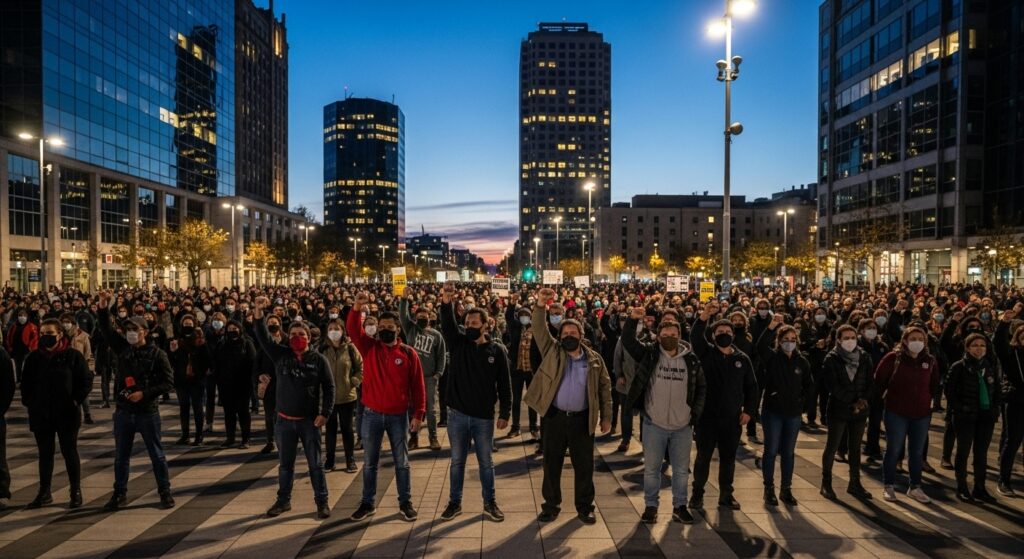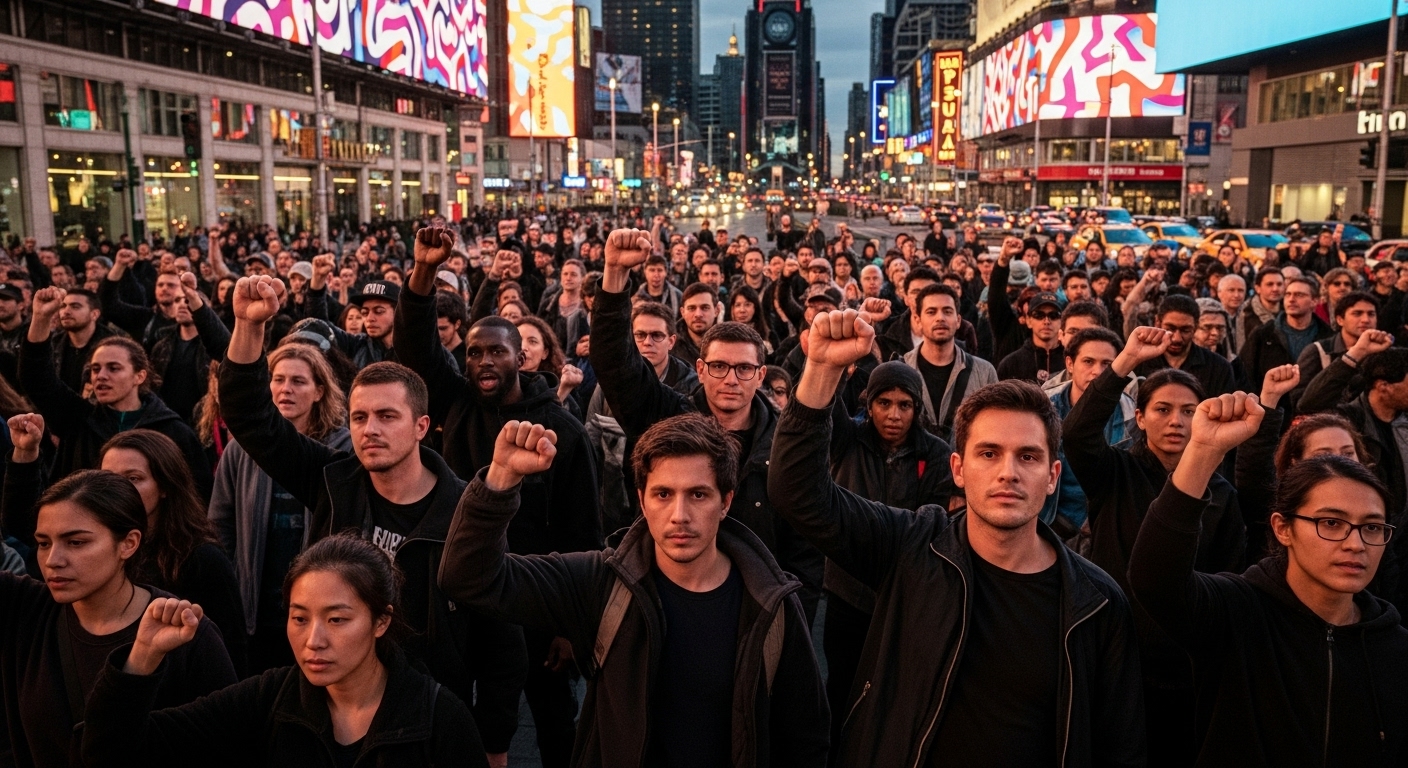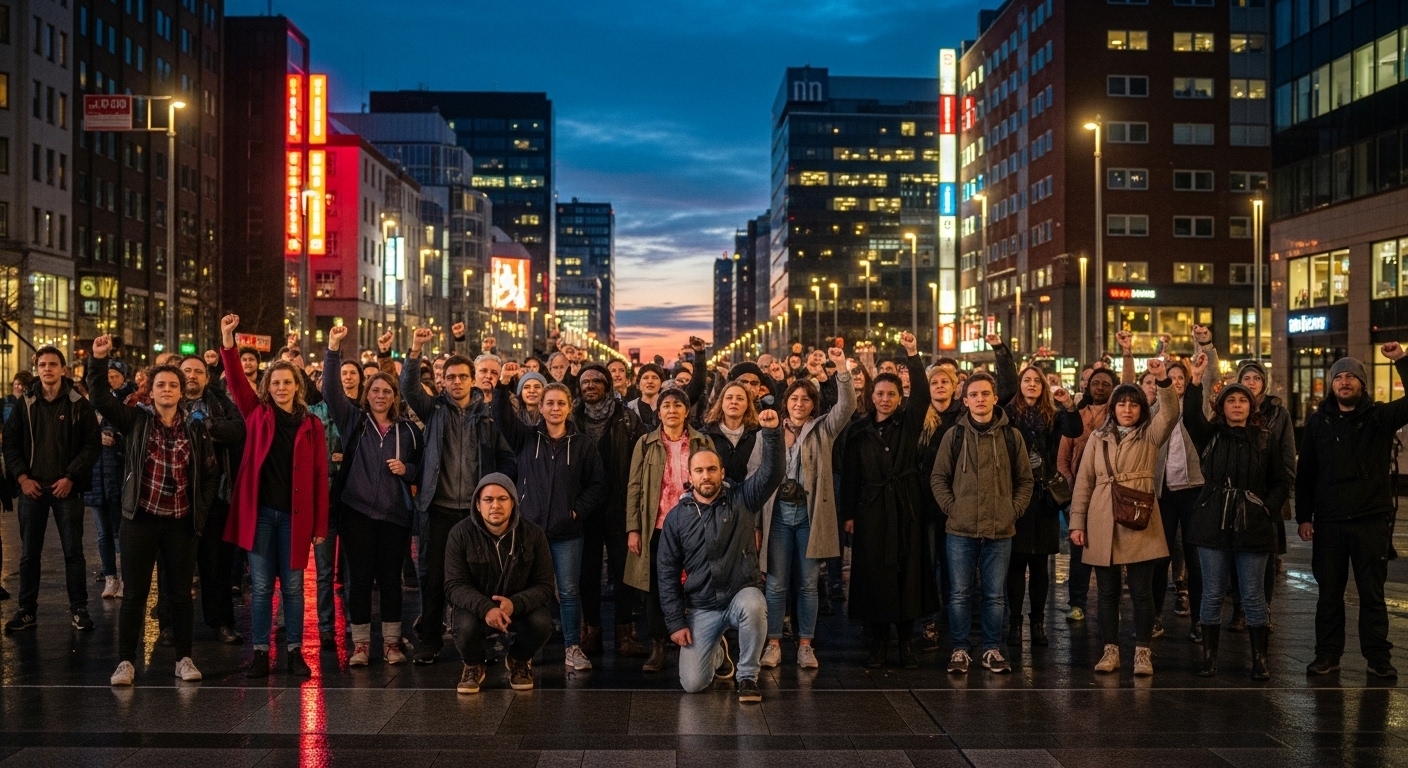
Are you looking to engage with current social and political discourse, specifically regarding the No Kings Movement? Finding reliable, up-to-date information on where and when specific `No Kings` protests are happening near you can often be a challenge. This comprehensive guide is designed to empower you with the knowledge to understand the movement, efficiently locate upcoming events, and participate safely and effectively.
Introduction: What is the No Kings Movement?
The No Kings Movement emerged as a powerful grassroots response to perceived abuses of power and overreach by authorities. While its specific grievances can evolve, the core message champions individual liberty, governmental accountability, and a rejection of authoritarian tendencies. It’s not simply an anti-government stance but a call for leadership that truly serves the people, rather than ruling over them without consent or democratic representation. Participants are often driven by a desire to see a more equitable and just society, free from what they view as dictatorial or monarchical political practices.
Understanding the Core Philosophy and Goals of No Kings
The fundamental philosophy of the No Kings Movement is rooted in democratic ideals and a strong belief in popular sovereignty. At its heart, it asserts that no single individual or entity should wield absolute power, echoing historical struggles against monarchy and tyranny. The movement seeks to decentralize power, promote transparency, and ensure that elected officials remain truly accountable to their constituents.
Key No Kings movement goals include:
- Restoring Constitutional Principles: Advocating for strict adherence to foundational legal frameworks, particularly those protecting individual rights and limiting governmental power.
- Enhancing Civic Participation: Encouraging active engagement from citizens in political processes beyond voting, including protests, lobbying, and community organizing.
- Demanding Accountability: Holding leaders responsible for their actions and decisions, pushing for reforms that prevent corruption and abuse of office.
This nuanced No Kings protest message differentiates it from more generalized dissent, focusing instead on a specific vision for democratic governance and societal structure. For a deeper dive into the ideological underpinnings, explore our article on Deconstructing the movement.
Key Grievances and Demands of the Movement
While the specific triggers for No Kings Movement protests can vary, common grievances often revolve around issues like executive overreach, suppression of civil liberties, economic inequality, and environmental concerns where government action is deemed insufficient or detrimental. We’ve observed participants voicing concerns over judicial appointments, election integrity, and the influence of corporate money in politics.
Demands typically include:
- Term Limits and Electoral Reform: Pushing for changes that ensure greater representation and prevent entrenched power.
- Protection of Free Speech and Assembly: Upholding fundamental rights essential for a functioning democracy.
- Economic Justice: Advocating for policies that address wealth disparities and support working-class communities.

How to Find No Kings Protests Near You
For those asking, `no kings protest near me`, finding timely and accurate information is crucial. The No Kings Movement often organizes through decentralized networks, making direct searches for `no kings protest near me` or `protest schedule near me` the most effective starting point. Activists frequently leverage social media and dedicated online platforms to coordinate events.
Local Search Strategies
- Targeted Search Engines: Use Google or other search engines with precise queries like “No Kings protest San Diego” or “No Kings protest California” to narrow down results.
- City-Specific Keywords: Include the name of your city or a nearby major city (e.g., “No Kings protest Los Angeles“, “No Kings protest Raleigh“) in your search to find hyper-local events.
Online Resources for Locating Protest Events
Numerous online platforms serve as vital hubs for coordinating and publicizing protest events. To `how to find local protests` effectively, consider these resources:
- Social Media: Platforms like X (formerly Twitter), Facebook, and Instagram are often used by organizers. Search for hashtags such as `#NoKings`, `#NoKingsProtest`, or specific event hashtags.
- Event Aggregators: Websites and apps specializing in local events sometimes list political rallies. Look for sections on community events or activism.
- Activist Group Websites: Many local activism groups maintain their own websites or social media pages where they announce upcoming actions. Searching for “local activism groups” in your area might lead you to relevant organizations.
- Encrypted Messaging Apps: Some decentralized movements use apps like Signal or Telegram for secure communication and event coordination within trusted groups.
While specific dates like “No Kings protest October 18” might be past, these channels will help you find current `mobilize no kings events`.
Preparing for a No Kings Protest: A Checklist
Participating in a protest requires thoughtful preparation to ensure your safety and effectiveness. Based on our experience, having a plan significantly enhances your involvement:
- Identify Your Goals: Understand what you are protesting for and the message you want to convey. This can also help you with `no kings protest sign ideas`.
- Dress Appropriately: Wear comfortable shoes and layers of clothing. Consider weather conditions and bring rain gear if necessary.
- Pack Essentials: Bring water, snacks, a fully charged phone, external battery pack, hand sanitizer, and any necessary medications.
- Inform Someone: Let a trusted friend or family member know where you are going and your expected return time.
- Understand Exit Routes: Familiarize yourself with the protest route and potential exit strategies if the situation becomes unsafe.
- Emergency Contacts: Write emergency contacts on your arm or carry a physical card in case your phone is lost or damaged.

Know Your Rights: Legal Protections for Protesters in the US
In the United States, citizens have constitutionally protected rights to protest, assemble peacefully, and express their views. However, these rights are not absolute and can have limitations. It’s imperative to understand your legal protections and responsibilities before joining any public demonstration.
Key rights to remember:
- Freedom of Speech and Assembly: You have the right to express your opinions and gather peacefully in public spaces.
- Right to Record: Generally, you have the right to photograph or video record police officers in public, provided you do not interfere with their duties.
- Right to Remain Silent: If arrested, you have the right to remain silent and request an attorney.
It is advisable to consult resources from organizations like the ACLU (American Civil Liberties Union) for the most current information regarding protest rights in your specific state. For more detailed guidance, refer to our First-Time Protestor Guide.
Beyond the Streets: Sustained Engagement and Advocacy
While attending protests is a powerful form of expression, sustained engagement is key to driving lasting change within the No Kings Movement. There are many ways to `join no kings protest` efforts that extend beyond street demonstrations:
- Contacting Representatives: Regularly communicate with your elected officials to voice your concerns and advocate for specific policies.
- Volunteering: Dedicate your time to organizations aligned with the movement’s goals. This can range from administrative tasks to community outreach.
- Educating Others: Share reliable information about the movement and its objectives with your network, fostering informed discussion.
- Financial Support: If able, contribute to organizations that support the No Kings Movement through legal aid, advocacy, or community programs.
- Community Organizing: Participate in `local activism groups` to build collective power and work on issues that affect your community.
The Impact and Future Trajectory of the No Kings Movement
The No Kings Movement has already demonstrated its capacity to mobilize significant numbers of people and bring critical issues to the forefront of public consciousness. Its impact is seen in increased dialogue around governmental accountability, calls for electoral reform, and a heightened sense of civic duty among participants.
Looking ahead, the movement’s trajectory will likely depend on its ability to:
- Maintain Cohesion: Unifying diverse voices under a common set of principles.
- Adapt to Challenges: Responding effectively to evolving political landscapes and counter-movements.
- Translate Activism into Policy: Converting public pressure into tangible legislative or systemic changes.
As long as the core grievances persist, the No Kings Movement is poised to remain a relevant and influential force in shaping public debate and political action.
Conclusion: Joining the Conversation
The No Kings Movement represents a significant expression of civic engagement, driven by a desire for accountable governance and a rejection of unchecked authority. By understanding its core philosophy, knowing how to `find local protests`, and preparing for safe and effective participation, you can become an informed and impactful part of this ongoing conversation.
Whether you are seeking to understand the movement’s demands or actively looking for a No Kings protest near me, this guide provides the essential tools and knowledge to engage thoughtfully and powerfully. Your participation matters.
